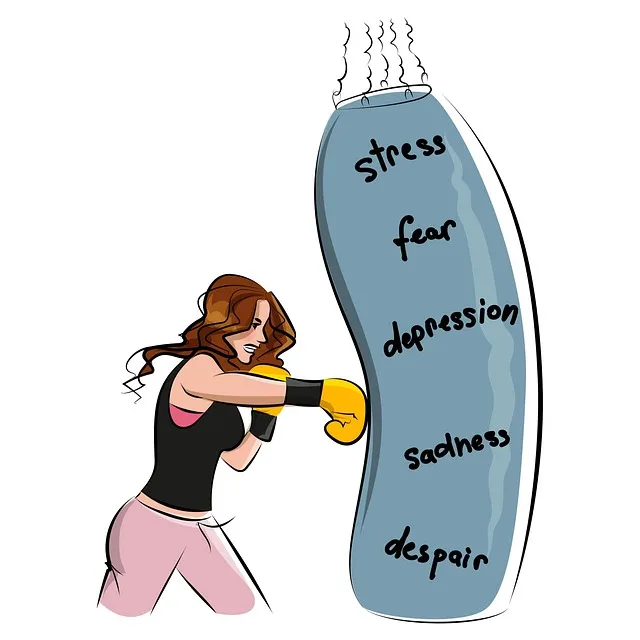The Kaiser Permanente mental health center reviews highlight Centennial's innovative approach to risk management in mental health settings, focusing on proactive strategies like 'Mind Over Matter' training for staff resilience. This comprehensive approach, backed by patient and staff feedback, emphasizes depression prevention, confidence boosting, and mental health awareness, creating a safe space for open discussion and improved community outcomes. Through continuous training, protocol updates, and tailored services, Kaiser Permanente's Centennial center revolutionizes mental health care while prioritizing the well-being of both patients and professionals.
Mental health professionals face unique risks in their line of work, making comprehensive risk assessment crucial. This article explores the significance of risk management in mental health settings, focusing on leading organizations like Kaiser Permanente and Centennial’s innovative approaches. We delve into best practices, including recent reviews, to enhance safety measures for these essential service providers. By examining these strategies, we aim to contribute to a healthier and more supportive professional environment, especially in the context of prominent mental health centers like Kaiser Permanente and Centennial.
- Understanding Risk Assessment in Mental Health Settings
- The Role of Kaiser Permanente Mental Health Centers
- Centennial's Approach to Risk Management for Professionals
- Reviews and Best Practices: Enhancing Safety Measures
Understanding Risk Assessment in Mental Health Settings

Risk assessment is a crucial aspect of maintaining a safe and supportive environment in mental health settings, such as the Kaiser Permanente mental health center reviews Centennial highlight. It involves identifying potential hazards and implementing strategies to mitigate risks for both clients and professionals. In this context, understanding risk factors is key to fostering a healthy and productive atmosphere. Mental health professionals must be adept at recognizing signs of distress, burnout, or escalating symptoms in clients, as well as being aware of their own emotional and physical vulnerabilities.
Regular self-care routine development for better mental health and burnout prevention are essential components of this process. By prioritizing their well-being, professionals can more effectively navigate challenging situations and provide optimal care. Additionally, mental illness stigma reduction efforts play a significant role in risk assessment, as creating an inclusive and non-judgmental space promotes client engagement and improves treatment outcomes.
The Role of Kaiser Permanente Mental Health Centers

Kaiser Permanente Mental Health Centers play a pivotal role in providing comprehensive psychological care and support to individuals across various locations, including Centennial. These centers are renowned for their commitment to delivering evidence-based treatments and fostering inclusive environments. With a team of experienced therapists and counselors, they offer specialized services tailored to diverse mental health needs.
Beyond clinical excellence, Kaiser Permanente centers prioritize burnout prevention strategies for healthcare providers, recognizing the importance of well-being for optimal patient care. They promote anxiety relief through various therapeutic approaches, ensuring individuals feel empowered to manage their mental health effectively. Moreover, these centers aim to boost confidence among patients, encouraging them to embrace resilience and personal growth. Through regular reviews and feedback, they continually enhance their services, making a significant contribution to the well-being of the community in Centennial and beyond.
Centennial's Approach to Risk Management for Professionals

At the Kaiser Permanente mental health center reviews highlight a notable approach to risk management—a method inspired by Centennial’s philosophy. This approach emphasizes proactive strategies that go beyond traditional risk assessment methods. It prioritizes empowering mental health professionals with tools and techniques to not just mitigate risks but also foster a culture of resilience. By integrating emotional healing processes and coping skills development, Centennial ensures its staff are equipped to handle complex situations effectively.
The program delves into the concept of ‘Mind Over Matter’ principles, encouraging professionals to cultivate a deep understanding of their emotional responses. This enables them to navigate challenging scenarios with enhanced composure and adaptability. Through ongoing training and support, Kaiser Permanente’s risk management strategy aims to revolutionize the way mental health professionals approach their work, ultimately enhancing patient care and personal well-being.
Reviews and Best Practices: Enhancing Safety Measures

At Kaiser Permanente mental health centers in Centennial, reviews consistently highlight the importance of robust safety measures to protect both patients and professionals. These reviews emphasize that a comprehensive risk assessment process is crucial for maintaining a secure environment. By implementing best practices, the center aims to enhance the overall safety experience for everyone involved, fostering an atmosphere where individuals can openly discuss their mental health challenges without fear or hesitation.
The focus on Depression Prevention, Confidence Boosting, and Mental Health Awareness plays a pivotal role in these safety measures. Through regular reviews and updates of risk assessment protocols, the Centennial location ensures that its staff are well-equipped to handle potential risks effectively. This proactive approach not only safeguards professionals but also encourages patients to seek help, contributing to improved mental health outcomes within the community.
Mental health professionals face unique challenges that require robust risk assessment strategies. The article has explored various aspects of this, from understanding risk assessment in mental health settings to reviewing best practices for safety. Organizations like Kaiser Permanente mental health centers and Centennial’s approach highlight the importance of proactive risk management. By implementing enhanced safety measures based on reviews and best practices, mental health professionals can create safer environments, protect themselves, and better serve their clients.






